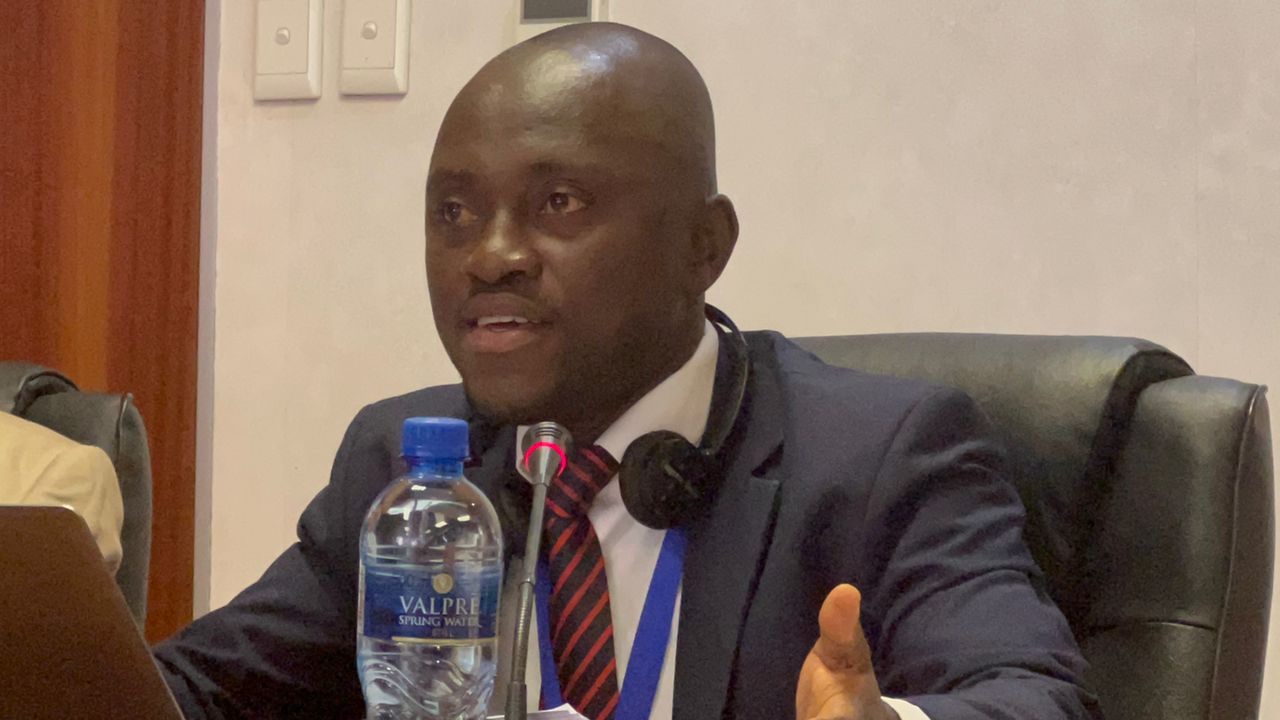|
Getting your Trinity Audio player ready…
|
The Parliamentary Network Africa (PNAfrica) has urged the Pan-African Parliament (PAP) to consider setting up a benchmark for Parliamentary Openness as a model framework to be adopted by African Parliaments towards an Open Parliament Agenda.
This was one of the three recommendations made by the Executive Director of PNAfrica, Sammy Obeng, when he presented a paper to the Committee on Rules, Privileges, and Discipline of the Pan African Parliament on the subject area of, “Open Parliament and the Pan African Parliament” on Thursday, August 25, 2022. This presentation was made on the sidelines of the ongoing Committee Meetings of the PAP at Midrand, South Africa.
As a leading voice on the campaign for Open Parliament on the continent, Mr. Sammy Obeng urged the Committee to recommend to the Pan African Parliament to lead by example in adopting open parliament principles within its own processes and practices, including measures to improve its accountability to the African people.
He said this was important because, the establishment of PAP is informed by a vision to provide a common platform for African peoples on the Continent and in the diaspora, and their grassroots organizations to be more involved in discussions and decision-making on the problems and challenges facing the Continent.
“PAP may consider developing a Benchmark on Open Parliament to be used by the Member States and Regional Economic Communities Parliaments, and further leverage its relationships with these Parliaments as envisaged in Article 19 of the PAP Protocol, to ensure that Consultative Fora on the subject of Open Parliaments are held with these regional and national Parliamentary bodies.
According to him, “Strengthening the PAP, Parliaments of Regional Economic Communities and National Parliaments in parliamentary openness will effectively ensure the full participation of the African peoples in the economic development and integration of the Continent as envisioned by the PAP Protocol.”
The other recommendations made by the Executive Director of PNAfrica to the PAP include, “Undertake the ongoing revision of its Rules of Procedure through Open Parliament lenses. This requires ensuring that the Rules will further enhance access to the PAP and information emanating from the Parliament, ensure maximum accountability from Pan-African Parliamentarians and the PAP Institution to the people of Africa, and put citizens’ understanding and participation in PAP’s work at the center of everything PAP does.
“Develop an Open Parliament Action Plan through a co-creation process with civil society. The existence of the Pan-African Parliament Civil Society Platform, the African Parliamentary Monitoring Organisations Network (APMON), and the African Parliamentary Press Network will be useful in getting PAP to work with civil society to create, implement and publicize actions on openness.
“PAP should encourage Parliaments of the Regional Economic Communities and in the Member States to do same, as civil society working and engaging parliaments are available to collaborate at national and regional levels. APMON is ready to work with the PAP and other stakeholders to facilitate these engagements.”
The Committee on Rules, Privileges, and Discipline of the PAP, led by its Chairman, Hon. T. J. Majola from South Africa was very appreciative of the presentation and recommendations and promised to have continuous interaction with PNAfrica going forward on the subject matter.
“I will seriously look at your three recommendations. That is very important when we deal with the issue of reviewing our rules …Thank you so much for your time and presentation and I strongly believe that this is not the last time for you to be here. If we need you we will call you to come and make another presentation,” the Chairman said.
